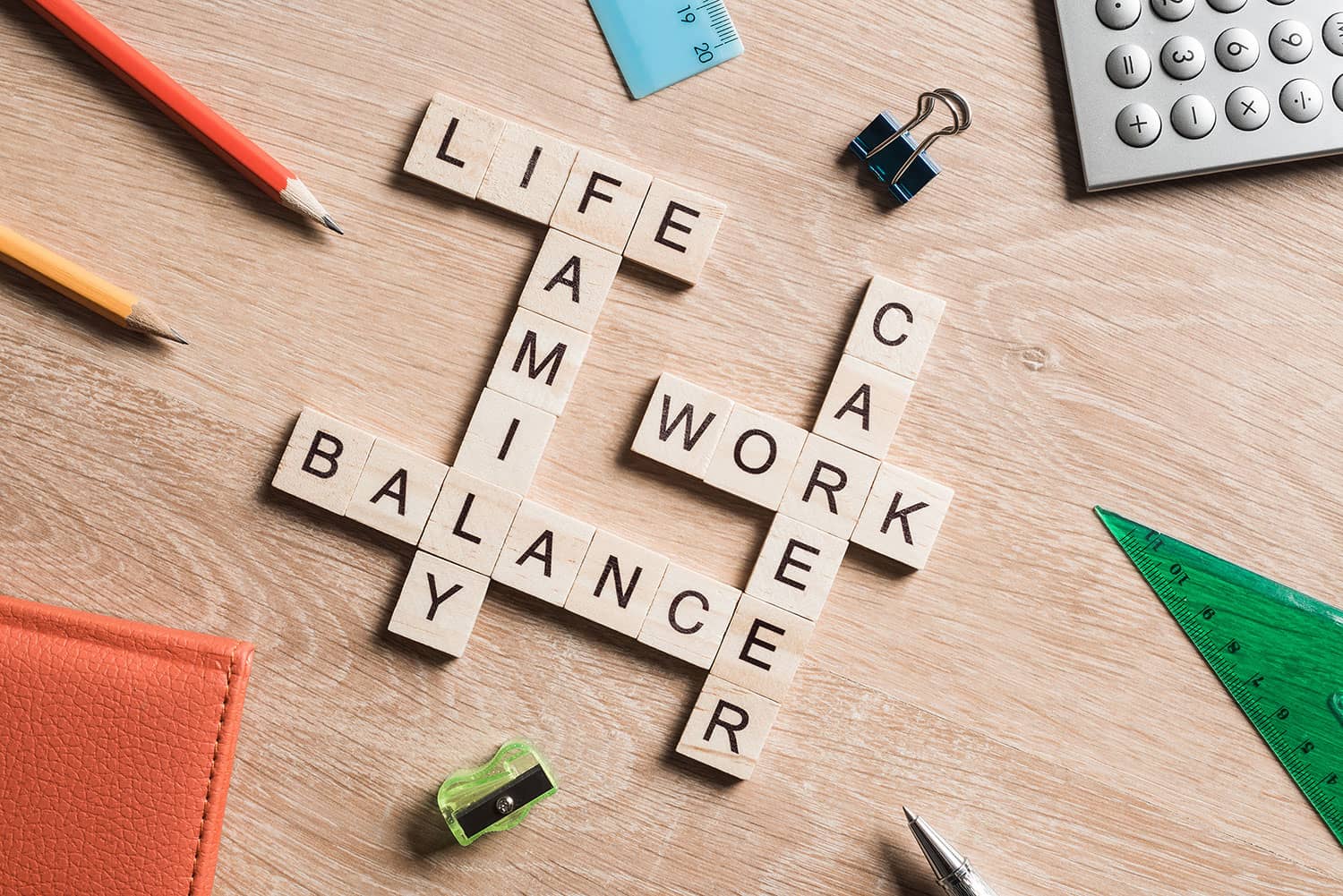Achieving Work-Life Balance
A healthy work-life balance is essential to living a fulfilled and productive life. Unfortunately, finding the time for mindful practices or setting boundaries can be difficult when overwhelmed by obligations and responsibilities. In this article, you will learn how to achieve better work life balance through exploring the concepts of mindfulness and boundaries, negative impacts of overworking, benefits of balance, tips for improvement, BetterUp solutions, and healthy habits. The right strategies and resources make achieving a healthier work-life balance possible.
Mindfulness and Boundaries
Learning to be mindful and set boundaries can help you make the most of your time so you don’t feel overwhelmed or drained. Achieving a better work-life balance requires learning to say no, set limits on yourself, and effectively manage your time. Burnout is a genuine concern, so it’s essential to take steps to avoid it. You can start by taking breaks throughout the day to relax and refresh. When faced with too much work or a busy schedule, prioritizing tasks and delegating responsibilities when possible can be helpful. Taking time for self-care is also essential to keep up with long-term goals, such as achieving a better work life balance. Setting realistic expectations and being mindful of your body’s needs are critical components of avoiding burnout and gaining a better work-life balance overall.
Negative Impacts of Overworking
If you’re consistently working overtime, it can seriously affect your health and relationships. The effects of overworking can lead to fatigue, poor health, stress, death, and damage to personal relationships. Working too much can also negatively impact productivity and effectiveness and be linked to increased risks such as heart problems, neck and muscle discomfort, unhealthy weight gain, smoking, and alcohol consumption. It’s essential to recognize the signs of burnout so that you can take steps toward finding balance in your life. Taking breaks throughout the day reduces stress levels and improves concentration. Prioritizing tasks can keep things under control, while setting realistic expectations will ensure that work doesn’t become overwhelming. Establishing clear boundaries between work and personal life will help you stay focused on what’s essential without sacrificing time with loved ones or other activities that bring joy. Work-life balance takes practice, but it is possible when you prioritize it.
Benefits of Balance
Achieving balance provides numerous benefits, not only for individuals but also for the companies they work for. Plus, it doesn’t have to be an ‘all-or-nothing’ approach – even small changes can make a big difference. Working smarter and taking regular breaks is excellent for physical health, as well as mental well-being. People who prioritize their psychological and physical health are likelier to have better concentration and increased productivity throughout the day. Additionally, having a healthy work/life balance decreases stress levels, leading to improved relationships with family and friends. Finally, companies benefit from balanced employees by having higher retention rates and reduced absenteeism due to illness or burnout.
Being mindful of your own boundaries helps you stay focused on your short-term and long-term goals. Setting realistic expectations permits us to take time off without feeling guilty or overwhelmed about all the undone tasks. Taking mini-breaks during the day refuels our bodies with energy that can help us become more engaged in our jobs over time rather than burning out quickly under tight deadlines or intense workloads. When we prioritize self-care through adequate sleep, proper nutrition, exercise, and relaxation techniques such as yoga and meditation, we can approach each day with greater clarity of thought, leading to success in both personal life and professional development endeavors!
Tips for Improvement
Take the time to focus on yourself and your well-being; it’ll pay off in the long run. Work-life balance can be challenging to achieve, but some tips can help you get started. Prioritizing tasks, delegating responsibilities, and setting realistic expectations are a few simple steps you can take to improve your work-life balance. Learning to say no and setting boundaries is vital for achieving mindfulness and preventing burnout. Taking breaks—even short ones—can help keep you focused and reduce stress. Investing in solid relationships with family and friends outside of work will improve your overall health, increase longevity, and provide valuable support when needed. Employers should also actively promote work-life balance by offering flexible schedules, telecommuting options, or employee assistance programs. Remember: achieving work-life balance is a continuous process that requires ongoing attention and adjustment!
Healthy Habits
Developing healthy habits is a great way to ensure you’re feeling your best and getting the most out of life! Making small changes can have a significant impact on your work-life balance. Start by establishing clear boundaries between work and personal time, such as setting aside specific hours for leisure activities like reading or exercising. Make sure to prioritize tasks so that you can handle everything you can handle. Delegate responsibilities when possible and set realistic expectations so you don’t overextend yourself. Take regular breaks throughout the day, even short ones, to give yourself a mental breather from the demands of the workplace. And don’t forget to take care of your physical health: go for walks outside, stretch regularly, and practice mindfulness techniques like deep breathing or meditation.
10 tips to achieve work life balance
- Set realistic goals: Setting realistic goals makes it easier to balance work and home life, as you can use your goals to prioritize what needs to be done.
- Make time for yourself: Taking time to relax and recharge is important for a healthy work-life balance. It’s important to make time to do activities that you enjoy and spend time with family and friends.
- Get organized: Organization is key to achieving balance. Setting up systems that help you keep track of tasks can help you stay on top of your workload and make sure you’re not overworking yourself.
- Learn to say “no”: Don’t overextend yourself by saying yes to too many commitments. Learning to say no can help you maintain balance and stay focused on the tasks that are most important.
- Don’t take work home: It’s important to draw a line between your work and home life. Try to leave work at the office and resist the urge to take it home with you.
- Set boundaries: Setting boundaries with your coworkers and your employer can help you achieve balance. Make sure your employer knows what hours you’re available and that you’re not obligated to answer calls and emails outside of those hours.
- Take breaks: Taking regular breaks can help reduce stress and improve focus. Get away from your desk for a few minutes and take a short walk or just stretch.
- Get enough sleep: Sleep is one of the most important factors in achieving balance. Make sure you’re getting enough rest to stay productive and energized.
- Exercise: Exercise is a great way to reduce stress and clear your mind. Make time for some physical activity every day to help you stay balanced.
- Ask for help: If you’re feeling overwhelmed or struggling to balance work and home life, don’t be afraid to ask for help. Talk to a friend, family member or coworker and get some support.
Final thoughts About How To Achieve Better Work Life Balance
You have the power to take control of your work-life balance and create a fulfilling and rewarding life. You can do this by practicing mindfulness, setting boundaries, and creating healthy habits that help you achieve balance. Think of it like a teeter-totter; the other goes down when one side is up. Balance is achieved when both sides are equal. With the right strategies and resources, you can make work-life balance an achievable reality. So go ahead – embrace balance in your life and experience the rewards!
Take the first step towards a better work-life balance with Adam! Click here to book your free consultation today and learn how to achieve a healthier, happier life.
Adam is a former Fortune 500 senior executive. He is a father, husband, student of life, and “self-awareness” transformational coaching leader.
Talk to Adam for FREE
SCHEDULE A NO OBLIGATION ONE-ON-ONE SESSION
Tell me about where you are in life, and I’ll suggest some tools to help you find new insights. It’s my purpose to serve others, so even if this meeting is our only interaction in life, I get the pleasure of meeting you and living my highest purpose.






